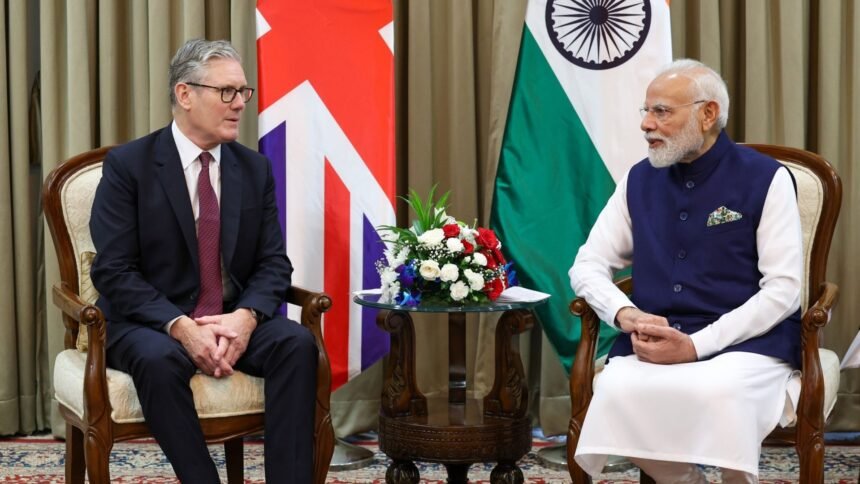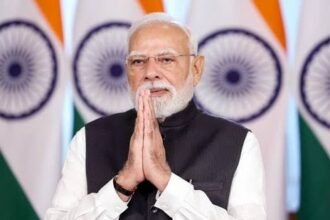Mumbai / London: In a landmark move that underscores the growing strategic alignment between India and the United Kingdom the two nations have sealed a £350 million (approx US $468 million) contract for the export of Lightweight Multirole Missiles (LMMs) known as Martlets from the UK to the Indian Army. The deal was struck during Prime Minister Keir Starmer’s maiden official visit to India and announced in Mumbai as part of a broader package of defence and technology agreements.
Key Highlights and Strategic Gains
- Job creation and industrial boost in the UK: The missiles and associated launch systems will be manufactured in Belfast Northern Ireland securing over 700 local jobs and supporting the UK defence-industrial base.
- Complex weapons partnership ahead: UK Government officials describe this as a foundation for a deeper advanced weapons cooperation with India including future rounds of collaboration and co-development.
- Naval collaboration parallel: Alongside the missile deal the two nations also agreed to further work on electric propulsion systems for naval vessels as part of a phased partnership.
What Are Martlets?
- Martlet missiles are a versatile class of lightweight multirole missiles capable of being used in air-to-surface surface-to-surface and surface-to-air roles. They were originally developed by Thales in the UK and have been deployed in the Ukraine conflict.
- The missile project builds upon the UK’s Starburst missile lineage, adapting it for broader application in modern low- to mid-intensity warfare scenarios.
- Owing to their light weight and precision, Martlets are well suited for engaging drones small naval vessels light armoured targets and other tactical threats.
Strategic Implications for India
- Bolstering air and coastal defence: Martlets offer India enhanced deterrence and flexibility, especially in littoral and asymmetric threat environments such as the Indo-Pacific.
- Augmenting its defence modernization path: The deal aligns with India’s push for upgrading the capabilities of its armed forces with next-generation systems.
- Strengthening India–UK strategic trust: Beyond a simple purchase, this deal paves the way for deeper technology partnerships, co-development and joint weapon systems over time.
- Signal in regional balance: The timing and scale of this agreement signal both to allies and competitors that India and the UK see defence cooperation as central to their strategic convergence.
Challenges & Watchpoints
- Integration risk: Ensuring compatibility of Martlets with India’s existing platforms, sensors, and command systems will be crucial.
- Technology transfer vs. sovereignty: India may press for deeper transfer, joint production or local assembly in subsequent phases to safeguard strategic autonomy.
- Reactions from region: Neighbouring powers and strategic peers will closely observe this new capability shift and the expanded India-UK military alignment.
Also Read: India-UK Ties Enter New Era with Historic Pacts on Defence, Education and Trade















